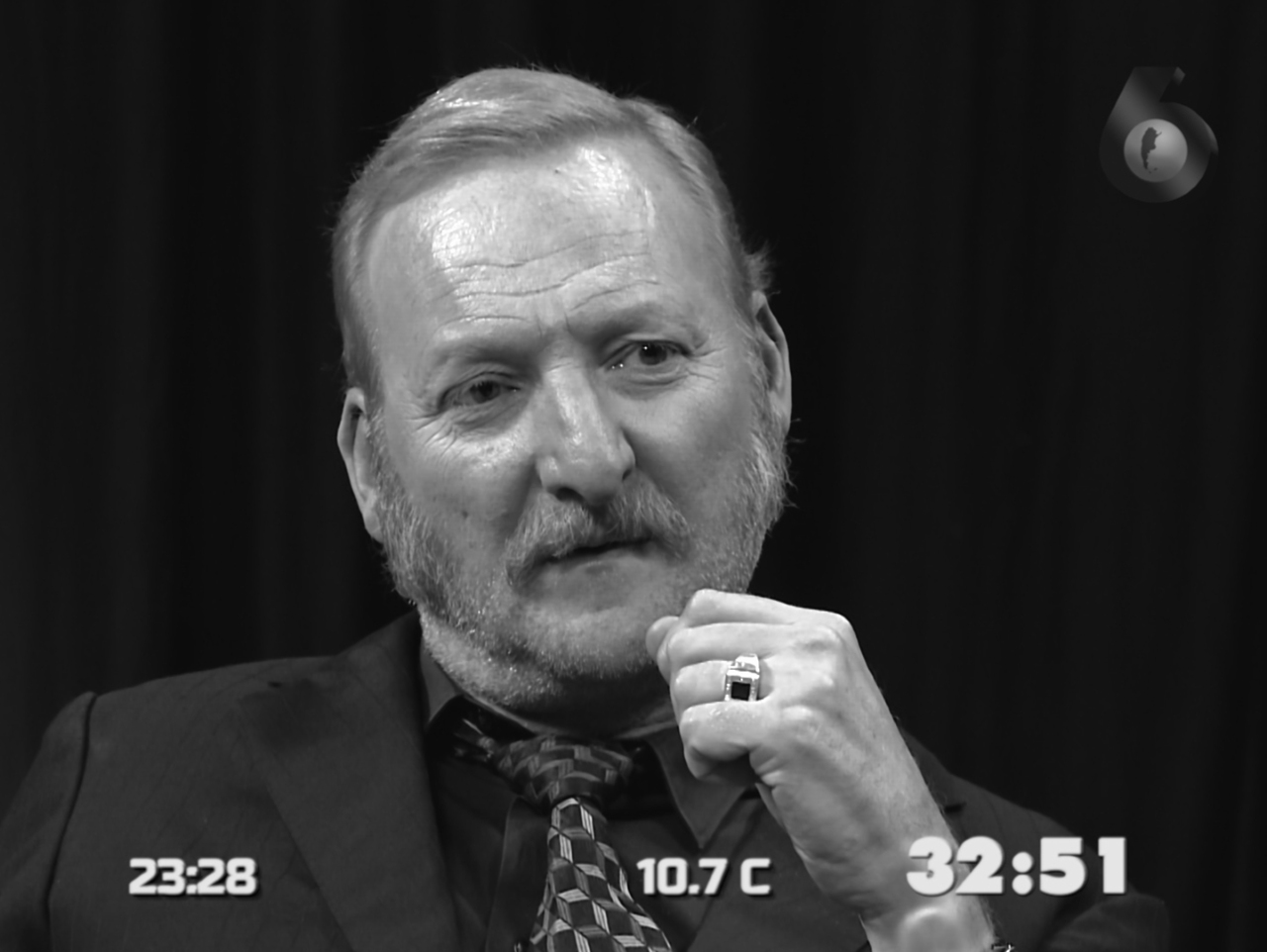(Historia de lo Oculto)
Crew
Director/Screenplay – Cristian Ponce, Producer – Pedro Saieg, Photography (b&w + some scenes colour) – Franco Cerana & Camilo Giordano, Music – Marcelo Cataldo, Visual Effects – Joaquin Kierbel & Criatian Ponce, Makeup Effects – Alejandra Suniar Gonda, Art Direction – Ignacio Buendia & Laura Roldan. Production Company – Tangram Cine/Decimu Labs/Taller Buendida/Lumbre Estudio/Mas Ruido/Universidad Nacional de la Plata.
Cast
Hector Ostrofsky (Alfredo), German Baudino (Adrian Marcato), Nadia Lozano (Maria), Ivan Esquerre (Lucio), Casper Uncal (Abel), Lucia Arreche (Natalia), Agustin Recondo (Jorge Fredericci), Luciano Guglielmino (Daniel Aguilar), Hernan Altamirano (Matias Linares)
Plot
In Buenos Aires, the tv news show 60 Minutes Before Midnight is about to go to air for its last ever show. The show focuses on an incident in the news where a security guard has been killed. A notebook has been found near the body that contains occult symbols and the names of members of the cabinet of President Emilio Belasco. The warlock Adrian Marcato has been brought into the studio for an interview. The production crew urge the host Alfredo to push Marcato with questions that will obtain a link to Belasco himself. They are also aware that those who are deemed Marcato’s enemies have met strange fates. As the interview gets underway, Marcato turns on his fellow interviewees. As Marcato is challenged to demonstrate his powers, the studio crew find the phones going out on them.
History of the Occult was a feature film directorial debut for Argentinean filmmaker Christian Ponce, who had previously worked as a writer and occasional director on tv. Ponce had previously also written the script for the horror film Black Blood: Aldo Knodell Must Die (2013)
History of the Occult is shot in a dense black-and-white intended to mimic the look of an aged television show – although this is not strictly a simulation of a tv broadcast and the camera also cuts to behind the scenes in the studio too. The effect during the black-and-white scenes is intense and claustrophobic. To search for a visual equivalent, you might compare the film to other black-and-white shot works such as Darren Aronofsky’s Pi (199), or perhaps even more Computer Chess (2013). However, when the characters start experiencing visions from the tannis root and other happenings towards the end of the film, the black-and-white suddenly bursts out into colour. The film makes interesting contrast to the subsequent Late Night With the Devil (2023), which also conducted a mimicry of the old tv talkshow format and introduced occult elements.
It is also a film that makes reference to other works of The Occult and Black Magic that have gone on before. German Bandino’s sorcerer is named Marcato, the anagram used by Roman Castevet in Rosemary’s Baby (1968), which also sounds very similar to Charles Gray’s Mocata in the classic The Devil Rides Out (1968). The drug being used is the tannis root, a fictional one that was created by Rosemary’s Baby.

The disappointment of History of the Occult is that it has a great set-up – an interview style tv show where a warlock is challenged and then turns the tables on his accusers, while promising something is going to happen. The very title History of the Occult seems to promise something epical that delves into the very history or meaning of the dark arts, but a simple tv interview with a black sorcerer feels underwhelming on the delivery of that. Nevertheless, I was determined to go with what the film offered.
As the film begins to play out, the interview sections hold your attention and German Baudino displays great presence as Marcato. However, the film sits waiting for something apocalyptic happening, only to arrive at a fade out where nothing that happens is clear at all. It is in essence a liminal film – one that seems perpetually poised on the precipice on something momentous happening without quite ever taking the step over the threshold.
Trailer here


